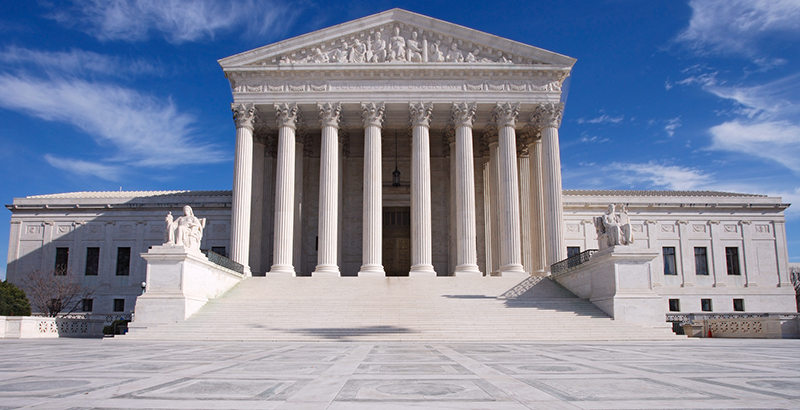In Blow to Union Detractors, Supreme Court Declines to Hear Three Post-Janus Cases Over Dues Collection

Get stories like these delivered straight to your inbox. Sign up for The 74 Newsletter
The U.S. Supreme Court on Monday declined to hear three cases in which some educators argue that unions continue to violate their First Amendment rights three years after a landmark ruling that made collecting fees from “nonconsenting” public sector employees unconstitutional.
The plaintiffs in the first two cases, Troesch v. Chicago Teachers Union and Fischer v. Murphy in New Jersey, said that so-called “escape periods” — short windows of time in which employees can opt out of paying union dues — are allowing states to avoid compliance with the court’s 2018 decision in Janus v. American Federation of State, County, and Municipal Employees, Council 31.
In Janus, the court ruled that the fees violate non-union members’ First Amendment rights because that money subsidizes political and policy positions.
The court on Monday also denied a request to hear a case from a Chicago teacher, Joseph Ocol, who argues he should receive a refund for the union fees he paid. Ocol has refused to join the picket line in the past two Chicago teacher strikes in 2016 and 2019.
A Supreme Court ruling on the post-Janus lawsuits would have impacted nearly 5 million members of public sector unions, according to the National Right to Work Legal Defense Foundation, which has been fighting what it calls “schemes” to get around the 2018 ruling. For example, 17 states limit withdrawal from the union to official escape periods, which can range from 10 to 30 days. If educators miss that opt-out window, school districts continue withdrawing the union dues from their paychecks for another year. Some of the laws were passed shortly after the Janus decision. But the Foundation and its clients haven’t been successful, and the appellate courts for the 3rd, 7th, 9th and 10th circuits have upheld restrictions on when employees can opt out of paying fees.
“We are disappointed the Supreme Court did not take this opportunity to clarify this important issue,” Patrick Semmens, the Foundation’s vice president, said in a statement. “We believe the Janus ruling does not permit public sector employees’ constitutional rights to be limited to an arbitrary union-created ‘escape period,’ and that eventually the High Court will need to step in to prevent Janus from being undermined.”
The Foundation continues to press that point. In late October, the Foundation asked the court to hear several similar petitions that don’t involve teachers. The anti-union attorneys argue some new employees are never informed about their right to refuse to pay dues under the Janus decision.
According to Colin Sharkey, executive director of the non-union Association of American Educators, thousands of teachers contact the organization each year for help on how to exit their union.
“Numerous states made it even harder to leave the union in the aftermath of the Janus decision, greatly limiting the will of many public employees,” he said.
But unions, which have seen declines in membership, maintain that they negotiate on behalf of all employees, whether or not they want to be part of a union.
Randi Weingarten, president of the American Federation of Teachers, said the court’s denial “exposed these frivolous cases for what they are: a cynical attempt by well-funded, anti-union radicals to flood the zone with countless post-Janus lawsuits to drain unions of resources.”
Get stories like these delivered straight to your inbox. Sign up for The 74 Newsletter

;)
